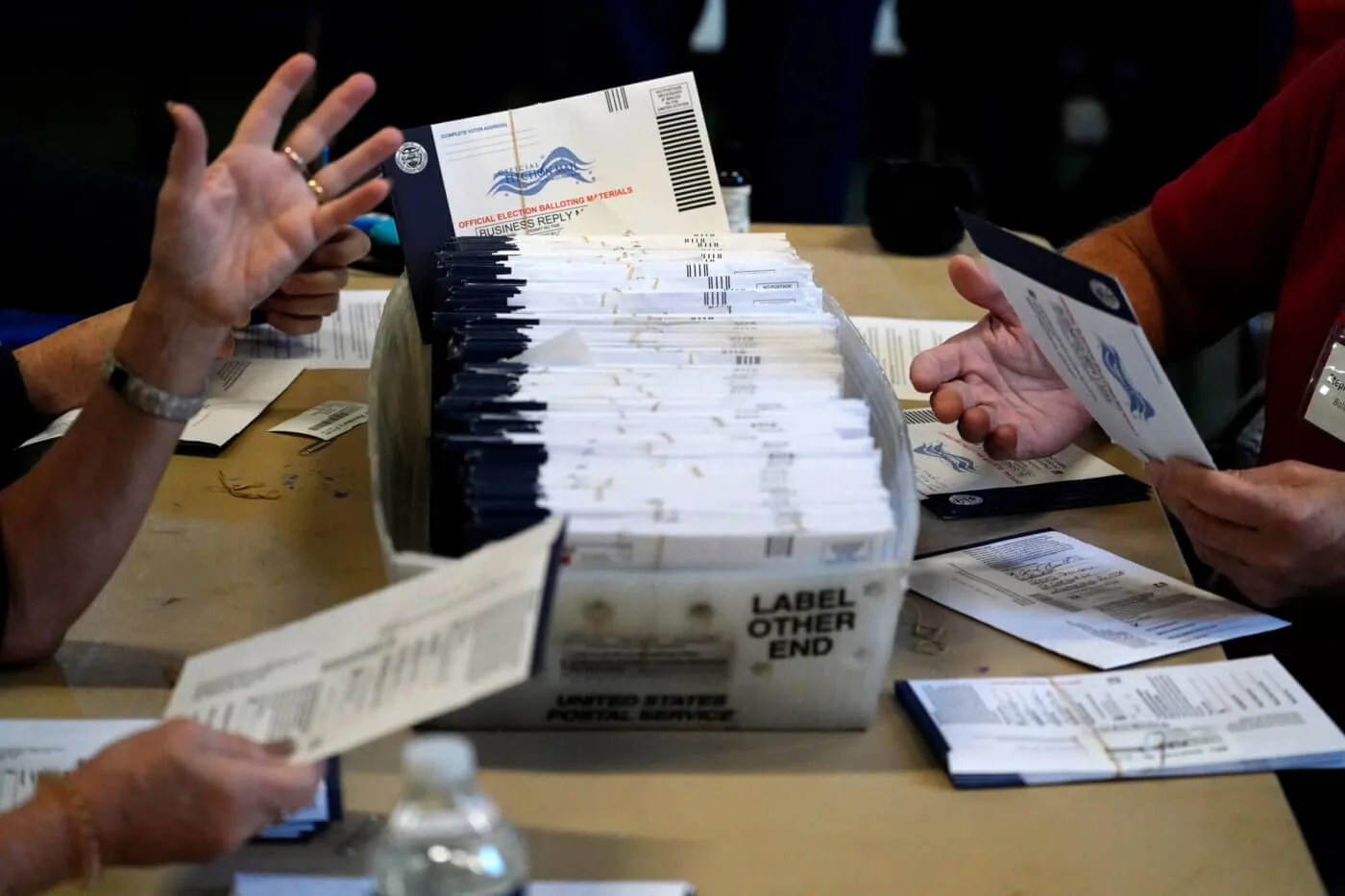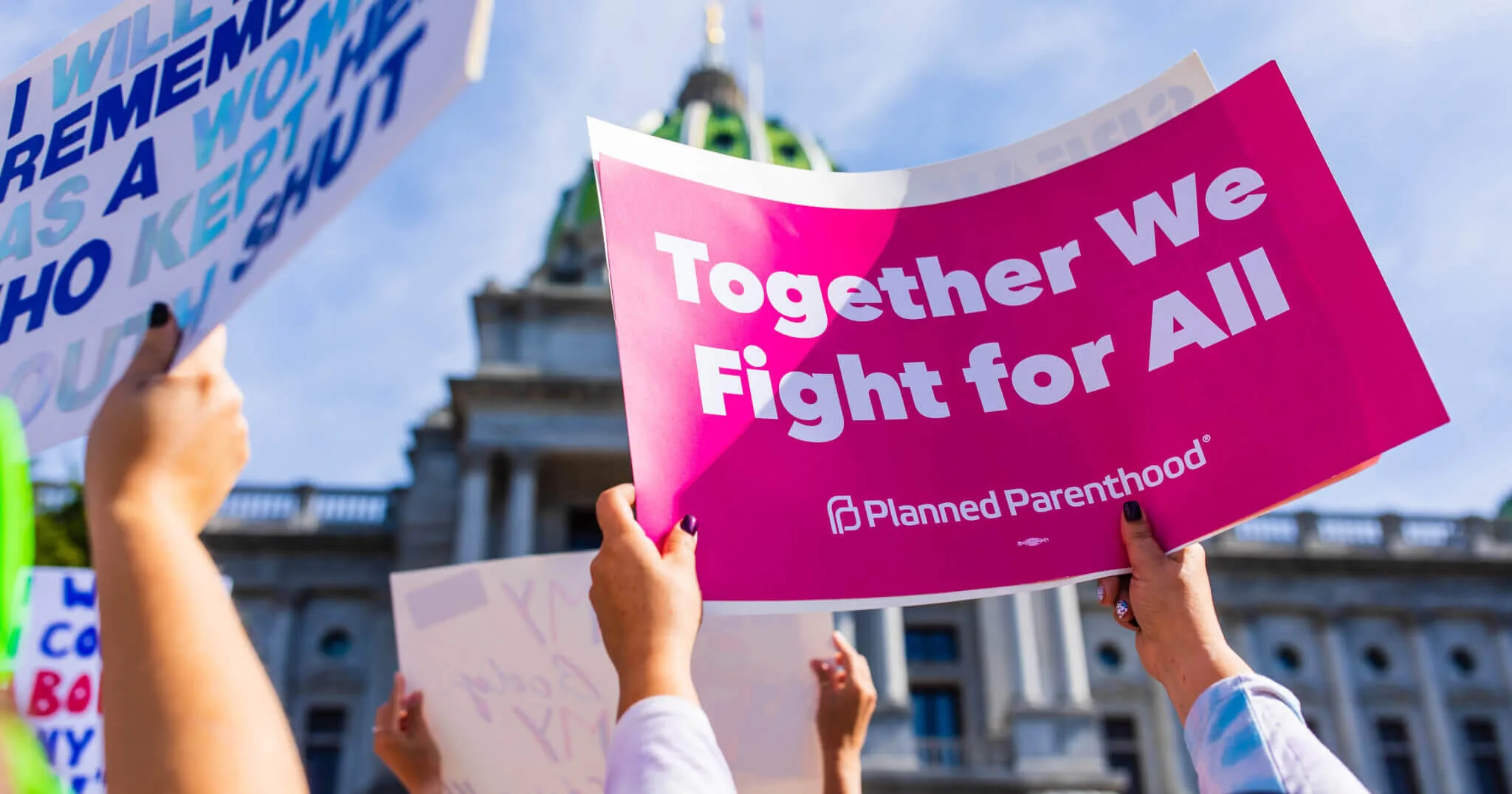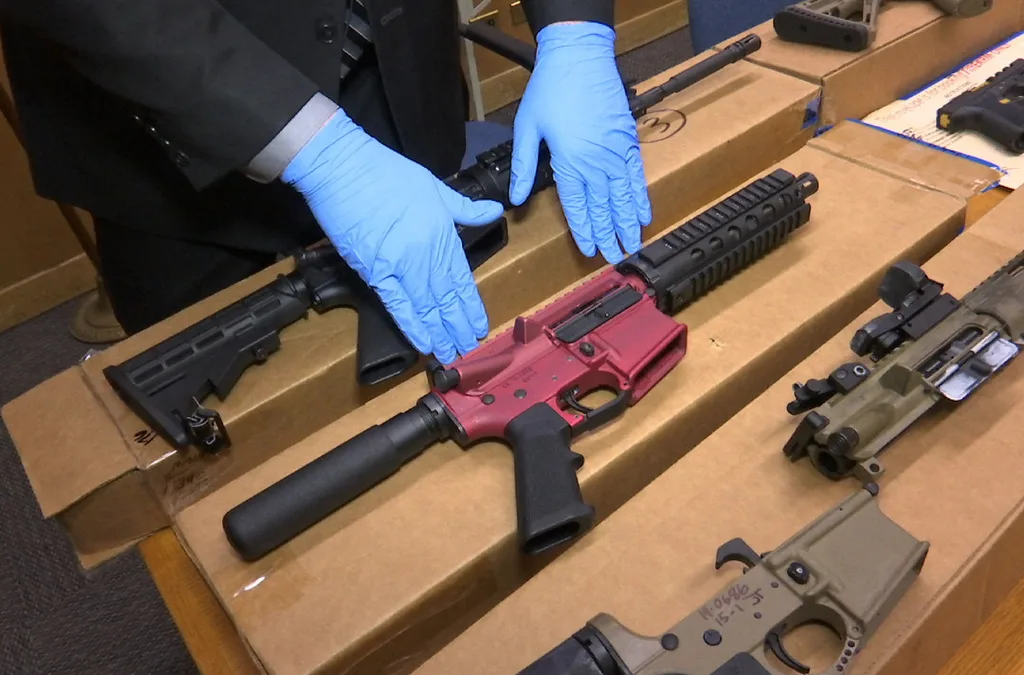
FILE - In this Wednesday, Nov. 4, 2020 file photo, Chester County election workers process mail-in and absentee ballots for the 2020 general election in the United States at West Chester University in West Chester. (AP Photo/Matt Slocum)
Control of the Pennsylvania House hangs in the balance with the upcoming special election in Delaware County to fill a vacant House seat. Issues such as abortion access, reproductive rights and voting rights take center stage.
There’s much more to Pennsylvania’s primary election next Tuesday, May 16, than municipal and county races. Democratic Control of the Pennsylvania House hangs in the balance with the special election to fill the 163rd Legislative District seat vacated by former Rep. Mike Zabel (D-Delaware). Zabel resigned from his seat after facing multiple allegations of sexual harassment.
Democrats flipped the House last November and regained the majority for the first time since 2009. However, it’s only aone seat margin that they gained following two special elections in February.
The 163rd House District in Delaware County used to be a Republican stronghold. The GOP held the seat for 40 years from 1979 to 2019, but Democrats flipped it, along with 10 other state House seats, in the 2018 wave election. Zabel won the seat by almost seven points in 2018 and increased those margins to 20 points in 2020 and 30 points under the new legislative maps in 2022.
Heather Boyd and Katie Ford were respectively nominated by the Delaware County Democratic and Republican committees to fill the open House seat. Boyd founded the Delaware County chapter of the National Organization of Women (N.O.W.) and worked as chief of staff for state Rep. Leanne Kruger (D-Delaware), and district director for US Rep. Mary Gay Scanlon (D-Delaware). Ford served as a combat medic in the Army and worked as a behavioral therapist.
At a debate hosted by ABC 27., Ford did little to separate herself from Boyd on topics such as abortion access, education funding, or pre-canvassing ballots. Following the debate, the Pennsylvania House Democratic Campaign Committee issued a statement highlighting discrepancies on Ford’s abortion record.
Ford stated that she supports a woman’s right to choose and would not support an amendment banning abortion, but in a recent ad, she came out supporting “reasonable, common-sense exceptions,” while attacking Boyd for not supporting any abortion restrictions.
Boyd responded in a statement saying “You can’t be endorsed by the Pro-Life Union, have flyers passed out promoting their endorsement of you as ‘pro-life’ but then turn around and claim to be pro-choice.”
The future of abortion access and voting rights in the state is tied to the outcome of the special election. If Ford wins, Republicans would regain their majority, and the ability to pass constitutional amendments restricting abortion access and implementing voter ID and other barriers to open elections.
A constitutional amendment has to go through the House and Senate in consecutive sessions before being placed on the ballot for voters to decide. Senate Republicans passed a package of amendments last July limiting the governor’s veto power, restricting abortion access, and implementing various voter suppression items. The Senate removed the anti-abortion amendment from their amendment package at the beginning of the current session last January, but Republicans would still be able to pursue it if they retake the House.
Kadida Kenner, the executive director of the New Pennsylvania Project, a progressive voting rights organization modeled after Stacey Abrams’ New Georgia Project, said that access to abortion and expanding voter rights are two of the main topics her organization is talking to voters about.
“In no way is 2023 an ‘off-year election’ with so much on the line — and at stake,” Kenner said “Pennsylvanians must turn out in record numbers on May 16 for the important local, municipal and judicial elections. We must vote all the way down the ballot to secure access to abortion, to protect and expand our freedom to vote and ballot accessibility, and to stop a power hungry attempt by some elected officials in Harrisburg wanting to usurp the authority of Governor Shapiro with constitutional amendments lacking bipartisan support.”
Politics

Opinion: Is Reproductive Healthcare just a women’s issue?
In this op-ed, Pennsylvania resident Lynn Strauss discusses the Republican Party’s conflicting stance on reproductive healthcare policy and the...

2 top US gun parts makers agree to temporarily halt sales in Pennsylvania
Philadelphia filed suit against Polymer80 and JSD Supply last year, accusing the manufacturers of perpetuating gun violence by manufacturing ghost...

It’s official: Your boss has to give you time off to recover from childbirth or get an abortion
Originally published by The 19th In what could be a groundbreaking shift in American workplaces, most employees across the country will now have...
Local News

Conjoined twins from Berks County die at age 62
Conjoined twins Lori and George Schappell, who pursued separate careers, interests and relationships during lives that defied medical expectations,...

Railroad agrees to $600 million settlement for fiery Ohio derailment, residents fear it’s not enough
Norfolk Southern has agreed to pay $600 million in a class-action lawsuit settlement for a fiery train derailment in February 2023 in eastern Ohio,...






